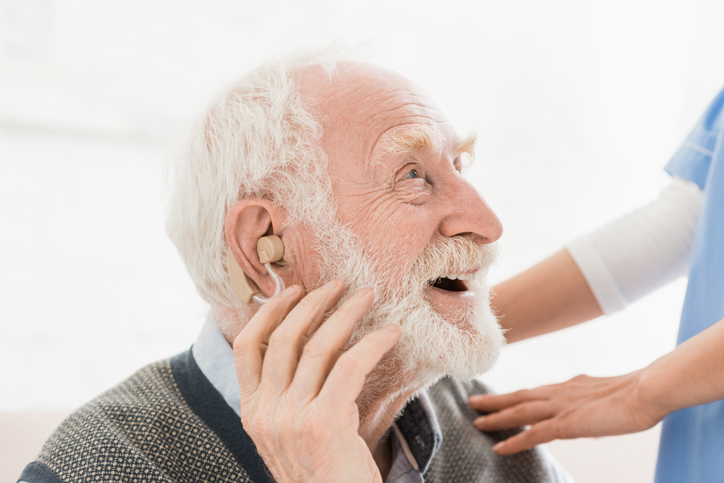
Hearing loss in seniors is not uncommon, but can be dangerous if not addressed.
Isolated. Misunderstood. Left out. These are simply a few of the numerous emotions that are common in people with hearing loss, who find it difficult to continue to maintain social connections with friends and family, who find it difficult to communicate with them.
Hearing loss in seniors is fairly common, for a plethora of reasons: genetics, a lifetime of accumulated damage from noise, disease, and also the process of getting older itself. And while frustrating when trying to participate in conversations, hearing loss in seniors could also be dangerous, leading to missed information presented by medical professionals, alarms, doorbells and alerts that are unheard, and much more. Furthermore, untreated hearing loss puts older adults at a greater risk for developing dementia, as cognitive capabilities decline at a greater rate.
If you suspect a senior loved one could be dealing with hearing issues, go over the following checklist of hearing loss red flags:
- Complaining of other people mumbling
- Turning the television or radio up to volumes that annoy others
- Often asking others to repeat what was stated
- Struggling specifically with hearing women’s and children’s voices
- Getting lost in discussions with more than one person
- Difficulty hearing over the phone
To better communicate with someone with hearing loss, try these pointers:
- Speak clearly, at a reasonable pace, while facing the person and sustaining eye contact
- Use gestures as well as other nonverbal cues along with your words
- Cut down on background noises and potential distractions
- Remain patient, relaxed, and positive
- If requested to repeat something, try using different words
There are lots of useful adaptive products readily available that your loved one’s physician may recommend, including:
- Hearing aids: With several different types available, be sure your senior loved one requests a trial period prior to committing to one particular hearing aid, as insurance might not cover the cost, and they can be quite costly.
- Cochlear implants: These electronic devices are ideal for people who have severe hearing loss, but are not effective with all types of hearing loss, and may need to be supplemented with additional adaptations, such as blinking doorbell lights or vibrating smoke detector alarms.
- OTC options: Those diagnosed with mild or moderate hearing loss might discover relief from new over-the-counter hearing devices, which amplify sounds; soon to be for sale on the internet and in stores.
The following resources can provide additional information and assistance for someone experiencing hearing loss:
Hearing Loss Association of America
301-657-2248
American Speech-Language-Hearing Association
800-638-8255
National Institute on Deafness and Other Communication Disorders
800-241-1044
Absolute Companion Care can also offer invaluable help to those with hearing loss in a variety of ways, such as recommendations for adaptive devices, transportation and accompaniment to healthcare appointments and procedures, friendly companionship to stave off loneliness, and so much more. Email or call us today at 410-357-9640 for more information on our specialized in-home and dementia care in Towson and the surrounding communities. Let us help make life safer and more comfortable for a senior you love.
